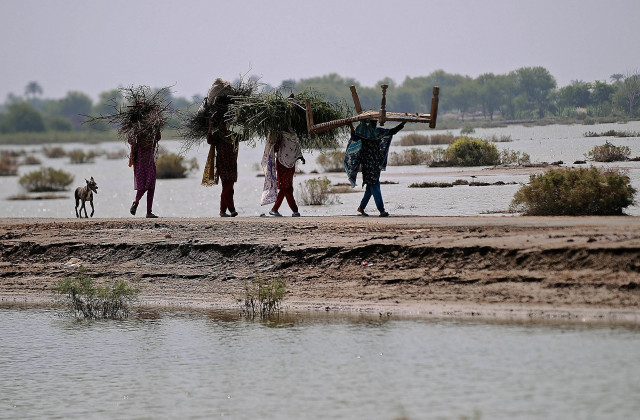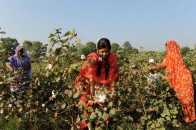‘Floods only exposed crises’
The power balance between the rich and the poor needs to be eradicated to save the state and society of the country.

‘Floods only exposed crises’
He said that the floods had only exposed the crises being faced by the country. He referred to a study conducted by new-institutional economists which categorised countries as developed and undeveloped based on their ability to sustain economic growth over the last 1,000 years.
He said that there were formal rules and informal norms that shaped human interaction and provided incentives and disincentives for economic actors.
Undeveloped countries, in which category he placed Pakistan, were marked with structures that restricted competitive behaviour, promoted nepotism, enabled corruption and failed to provide enough incentives for innovation.
Akmal said that countries with these attributes excluded majority of their populations from the growth and governance activities. The masses, he said, were left to lead impoverished lives to sustain the lavish lifestyle of a small elite. He said that 73 per cent of the Pakistani population was already food insecure while 73 per cent was already exposed to disease when the floods struck.
He said that the floods had provided the country with an opportunity to re-evaluate and change the institutional structures of its economy. Recovery from floods, he said, should be linked to economic recovery.
His solution was to distribute land amongst the tillers, setting up large cooperatives with rural poor as equity holders. He gave the examples of Amul, the world’s largest milk production and exporting company in India; Ligit Papar, having a workforce of three million rural women in India; and Grameen Telecom in Bangladesh.
Lahore University of Management Sciences (LUMS) Department of Humanities and Social Sciences dean Dr Ijaz Nabi said that economic recovery of the country was linked to pro-manufacturing sector policies and promotion of land-based trade routes.
He said that the manufacturing sector of Pakistan currently accounted for only 27 per cent of the country’s economy yet it was paying 63 per cent of the total taxes.
The majority sectors, agriculture and services, were paying far less.
Nabi said that the colonisation and the partition of the sub-continent deprived Pakistan of trade routes to Central Asia, Eastern Punjab and other parts of India. Nabi criticised Pakistani economy’s heavy dependence on sea-based trade. “Coastline is about one by twentieth of our border, the rest is all land and still our economy behaves like an island economy,” he said.
Nabi and Hussain agreed that the country got several growth spurts but differed in their explanation of why they came to an end. While Nabi focused advocated smart energy pricing and taxation policies, Hussain focused on changing the institutional structure by ‘making the poor the subject as well as the beneficiaries of the economic growth’.
Sartaj Aziz, former finance minister, regretted that the foreign policy and the defence policy of the country had not always been in line with the economic realities.
Published in The Express Tribune, October 28th, 2010.


















COMMENTS
Comments are moderated and generally will be posted if they are on-topic and not abusive.
For more information, please see our Comments FAQ